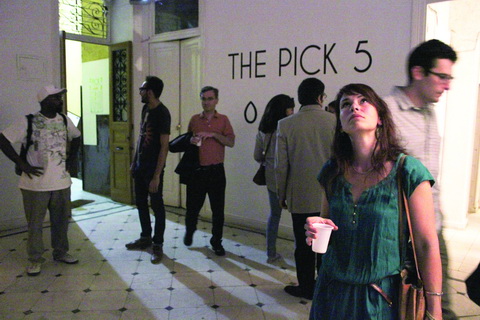Bulgarian-born French concert pianist Alexis Weissenberg, considered one of the great classical music performers of the 20th century, has died aged 82.
After suffering from Parkinson’s disease for 30 years, Weissenberg died on Sunday in Lugano, Switzerland, Paris Orchestra artistic director Didier de Cottignies said.
"A virtuoso musician and a big-hearted man who spared no effort to cultivate new generations of piano players has left us," Bulgarian Foreign Minister Nikolay Mladenov said in a statement.
Bulgarian Culture Minister Vezhdi Rashidov described Weissenberg as "one of the greatest piano players of the 20th century" and said he felt "enormous pain" at the news of his death.
Born to a Jewish family in Sofia in 1929, Weissenberg, a specialist in the music of Bach and Rachmaninov, was taught piano by his mother and gave his first recital at the age of 10.
In an autobiographical essay posted on his website, Weissenberg recounted how, while attempting to flee Bulgaria for Turkey in 1941 as fascism ravaged Europe, he and his mother were captured and thrown into a concentration camp.
After three months they were freed and put on a train to Istanbul by a German guard who had enjoyed listening to Weissenberg play the accordion.
"The German officer who was given the responsibility of our bunker happened to like music enormously. Luck is a nasty miscalculation which sometimes produces tiny miracles," Weissenberg wrote.
In 1943 he entered the Jerusalem Academy of Music and performed under Leonard Bernstein.
In 1946 and 1947 Weissenberg studied at New York’s Juilliard School of Music and he made his New York debut at Carnegie Hall under the baton of George Szell.
At the age of 17 he won the prestigious Leventritt Competition and over the next 10 years toured the globe.
A 10-year sabbatical for study and research followed but he returned to the stage in 1967 as soloist at the Berlin Philharmonic under Herbert von Karajan.
He joined the Paris Orchestra in 1968 and settled in France, eventually becoming a French citizen.
"He was a pianist on the point of perfection. He was like fine crystal, with absolutely no slippage, with incredible control," said pianist, composer and conductor Francois Weigel, a former student of Weissenberg.
His style was often qualified as cerebral, even icy, the work of a perfectionist and technical master.
"One cannot deny his extraordinary technical command: he summons a vast wash of sound from the instrument, and the most complex contrapuntal difficulties are as child’s play," The New York Times wrote in a review of a 1985 recital.
"But his interpretations have sometimes seemed those of an automaton, characterized by a brute strength that steamrolls any hint of poetry or introspection."
His later years were focused on teaching, in particular with his Piano Master Class in Engelberg, Switzerland, and on composing a number of pieces for piano.



